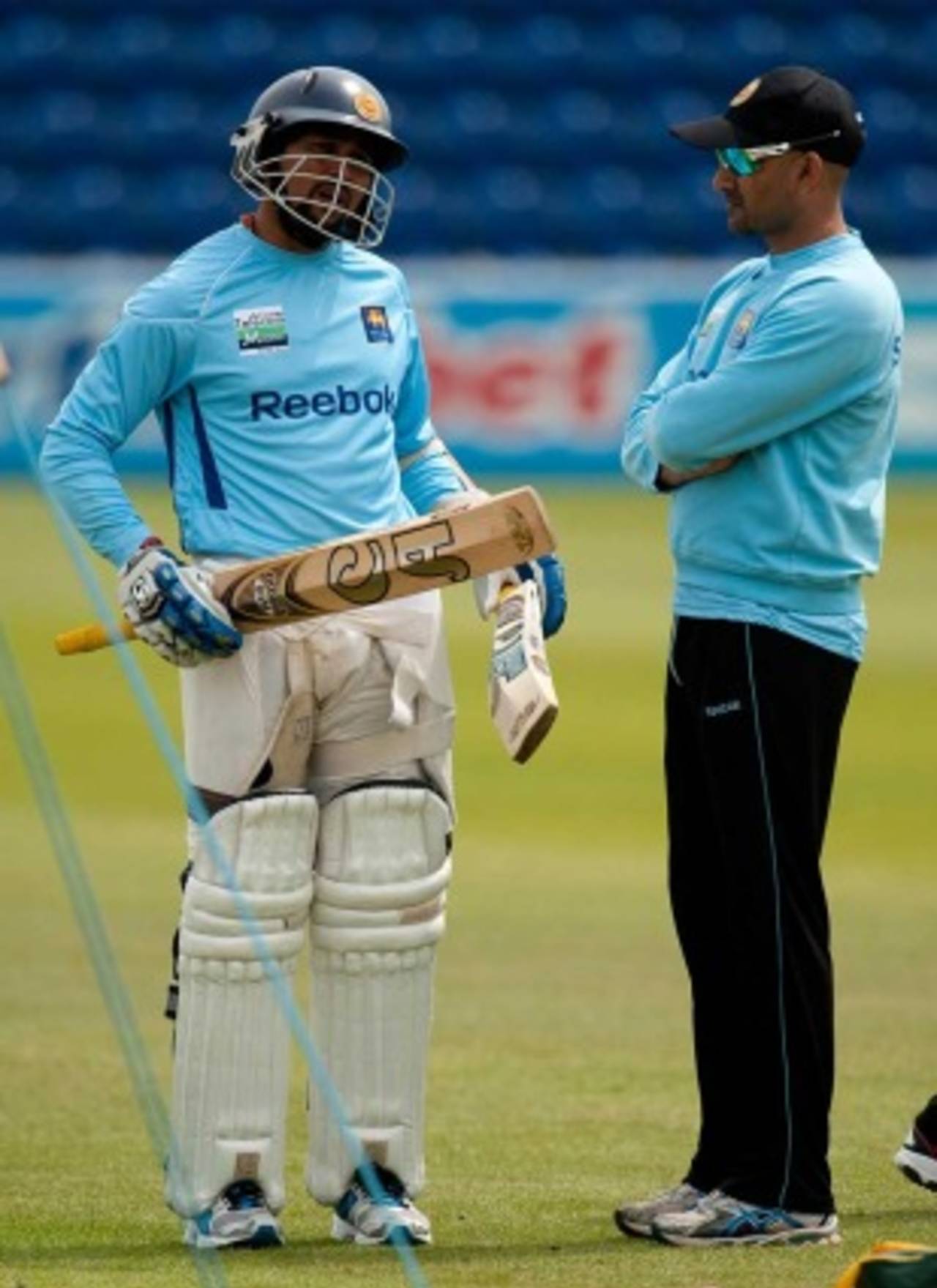Marvan Atapattu, Sri Lanka's batting coach, is confident the team would put behind their dismal batting performance against New Zealand in Cardiff and bounce back in the remaining two Champions Trophy group matches against England and Australia.
"True, we had a bad batting innings the other day," Atapattu said. "The spirit was high and the boys were fighting, and we almost got through. But unfortunately, it didn't happen for more than one reason.
"Within the team, everyone wants to win. It's about experience. Given the reputation of some of these guys, they want to win these two games badly. Nobody would like those reputations to be tarnished playing in England, especially."
Sri Lanka meet England at the Oval on June 13 and Australia at the same venue on June 17. They need to win both games to have a chance of qualifying for the semi-finals.
Against New Zealand in Cardiff last Sunday, Sri Lanka's batting collapsed for 138 and they lost by a narrow one-wicket margin. Atapattu, a former captain and top-order batsman, summed up the team's batting performance by saying that the batsmen needed to bring their experience into play in such situations.
"We have the experience, but putting that to work is something. We have spoken about it. [From] time to time, it will happen. Hopefully we will read situations better and think 50-over cricket and bat 300 balls of the innings.
"Looking at the total we got, it wasn't satisfactory. We could have read the situation from the middle. We could have adjusted to settling down to a much lesser target, when you are looking at 230-240 at the fall of the second wicket. Then, the way the wicket behaved and the way we approached it, things went wrong for us."
He regretted the fact that Sri Lanka did not play out their full quota of 50 overs. Atapattu also said that the team had played seven batsmen against New Zealand so that they could set a suitable target but the batting order did not add substantial partnerships.
"That's really disappointing - not batting 50 overs. It's mandatory we use the full quota of 300 balls. Not to have used it is something that we really regret as a group," Atapattu said. "We don't want to go back to the bowlers and expect them to do something. It's up to the batsmen to take on the responsibility and not expect something from the tail. Everybody has been given a role. Our batsmen will not get a flying start every day. But by playing seven batsmen, we have the cushioning of one extra batsman to get to the target we wanted. We needed to have two partnerships going to get to the total we required."
According to Atapattu, the key to succeeding in English conditions was all about spending time in the middle. "It's all about spending a little more time to get into a rhythm. As you go along and as you get a rhythm scoring runs will be a lot easier," he said. "The basic principle of one-day cricket is that you get your best batsmen to bat early in the innings so that you give them ample time and face more balls. But in different conditions, against different oppositions, those options could vary and there are times when you need to be flexible. We are open to it. It is not something where we say, 'No, this is our batting order.'"
Given that context, he said the team had considered pushing some of the younger batsmen up the order but had decided on sticking to a settled batting line-up for this tournament.
"It's something that we have spoken about, but that's something that we decided to stick with for this tournament and we don't want that to be a disturbing factor. We would like to see them batting at their positions and doing their best. If they come up trumps the other side of the coin is that the team will do well," he said.
He also admitted that the youngsters in the side needed to be pushed to perform, and it was the job of the coaches and senior players to instill a sense of professionalism in them.
"I reckon we, as coaches, become facilitators in front of senior players, and, in the meantime, be pushy with some of these youngsters," Atapattu said. "At one point, they will realise what's good for them and what's not. Our system is such, compared to places like England, Australia or South Africa where you see professionalism setting in very early. For us, it won't happen. We need to understand that and push these youngsters. Sticking to the basics is important to being a good batsman. If you have a good foundation, from there, you can modify your game to reach any level."
The former Sri Lanka captain also said that the amount of cricket played throughout the year didn't allow players adequate time to prepare and practice. "Those days have gone. You get plenty of cricket nowadays; all sorts of formats come in. It won't be ideal, but these guys are professionals compared to our times or 10 years ago. This is where professionalism comes into the equation," he said.
